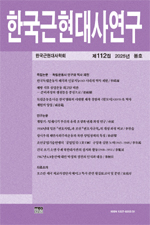- 영문명
- Unprotected Childhoods: Law, Empire, and the Colonial Politics of Child Abuse in Korea
- 발행기관
- 한국근현대사학회
- 저자명
- 李周熙(Ju-Hee LEE)
- 간행물 정보
- 『한국근현대사연구』제114집, 38~63쪽, 전체 26쪽
- 주제분류
- 인문학 > 역사학
- 파일형태
- 발행일자
- 2025.09.30
5,920원
구매일시로부터 72시간 이내에 다운로드 가능합니다.
이 학술논문 정보는 (주)교보문고와 각 발행기관 사이에 저작물 이용 계약이 체결된 것으로, 교보문고를 통해 제공되고 있습니다.

국문 초록
이 글은 일제강점기 조선인의 「아동학대방지령」 제정 요구와 조선총독부의 대응을 분석하고, 식민지 조선에서 ‘아동보호’ 제도의 부재가 지닌 식민통치적 성격을 밝히는 데 목적이 있다. 이를 세 가지로 정리하면 다음과 같다.
첫째, 제1차 세계대전 이후 일제와 조선총독부는 아동학대방지를 ‘아동보호’ 의 일부로 인식했다. 그러나 일본 내에서 ‘아동학대방지’가 제도화한 데 반해조선총독부는 법제화를 추진하지 않았다. 결국 아동학대 문제는 민간 차원에서해결되어야 했다.
둘째, 조선인들은 가정·교육·노동 현장에서 일어난 아동학대 문제를 공론화하여 법률 제정을 촉구했다. 이들이 「아동학대방지령」을 요구한 것은 억압받는 아동에게 교육의 기회를 부여하고, 존중받는 존재로 살아갈 권리를 보장하고자했기 때문이다. 특히 일본 내 「아동학대방지법」 제정과 그에 대한 보도는 조선 사회의 제정 요구를 구체화하는 계기가 되었다.
셋째, 조선총독부는 예산 부족과 ‘식민지 특수성’을 이유로 입법을 유보했다. 그 결과 조선인 아동은 법적 ‘보호’의 대상에서 배제되었다. 이는 제국과 식민지 사이에 작동한 차등적 법 적용 구조를 확인할 수 있을 뿐 아니라, 제국이 식민지 아동을 ‘보호’의 대상이 아닌 ‘식민지 인적자원’으로 인식하고 있었음을 보여준다.
영문 초록
This study examines Korean demands for the enactment of the Child Abuse Prevention Ordinance (兒童虐待防止令) during the Japanese colonial period and analyzes the Government-General of Korea’s response. It aims to clarify the colonial logic behind the absence of institutionalized child protection in colonial Korea. The argument can be summarized in three points.
First, following World War I, both the Government-General and Korean society recognized the prevention of child abuse as part of broader child protection efforts. However, unlike the Japanese empire, which institutionalized such measures, the colonial administration did not pursue legal codification, leaving child abuse issues to be addressed privately.
Second, Koreans actively raised awareness of child abuse occurring in households, schools, and workplaces, and called for legislation. Their demands were grounded in the belief that oppressed children deserved access to education and the right to live with dignity. Reports on the enactment process of Japan’s Child Abuse Prevention Law and its contents further galvanized these calls.
Third, the Government-General of Korea postponed legislation, citing budget constraints and the so-called “peculiarities of the colony.” As a result, Korean children were excluded from legal protection. This not only reveals the unequal application of law between the metropole and the colony, but also demonstrates that the imperial government regarded colonial children not as subjects of protection, but as ‘human resources’ for the colonial state.
목차
1. 머리말
2. 식민지 조선 내 아동학대방지 논의
3. 식민지 조선 내 아동학대 실태와 관련법 제정 요구
4. 조선총독부의 법 제정 거부와 의미
5. 맺음말
참고문헌
키워드
해당간행물 수록 논문
참고문헌
관련논문
최근 이용한 논문
교보eBook 첫 방문을 환영 합니다!

신규가입 혜택 지급이 완료 되었습니다.
바로 사용 가능한 교보e캐시 1,000원 (유효기간 7일)
지금 바로 교보eBook의 다양한 콘텐츠를 이용해 보세요!



